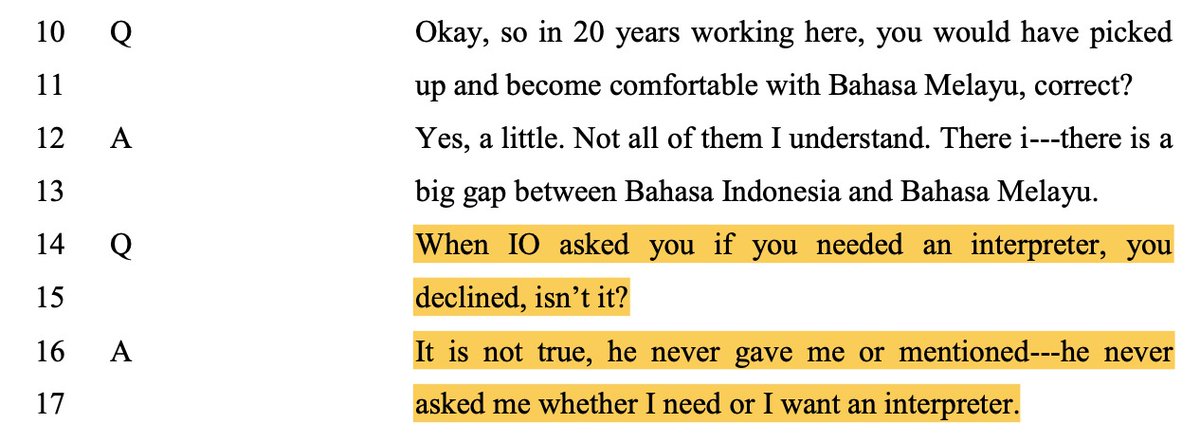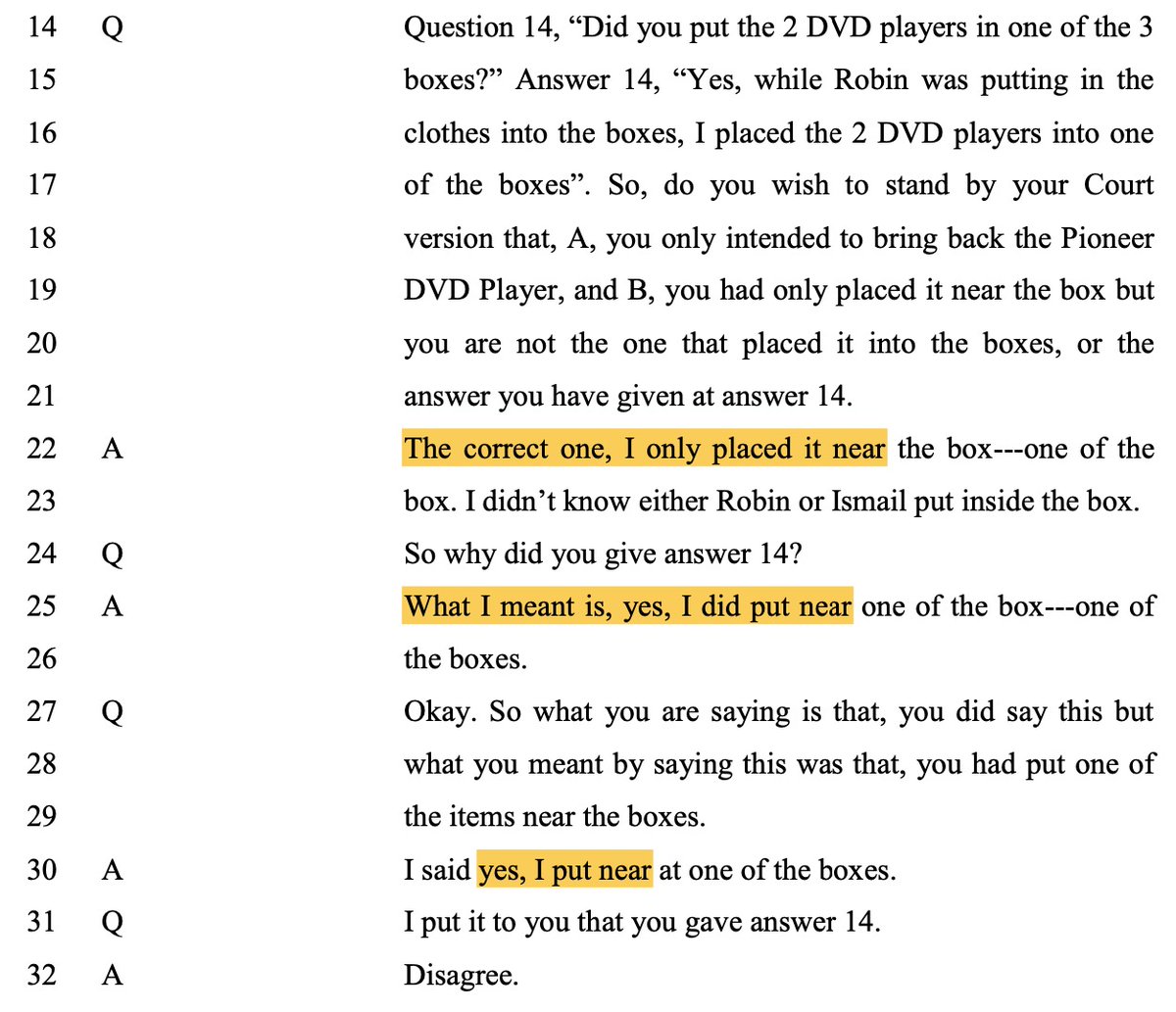In his Ministerial Statement on the Parti Liyani case, K Shanmugam pointed to inconsistencies in Parti's statements, and between her statements and her testimony in court, multiple times. This has moved some prominent commentators to question her innocence.
This is a thread to break down this article by Stephii Chok that explains the problems with how the police statements were recorded, and why there were inconsistencies in Parti's statements. https://partiliyani.weebly.com/the-police-statements-language-interpretation-and-procedural-justice.html?fbclid=IwAR3XmJw3-cBcgp7F2YtNzjIJz6ABDw8GM7GQ1G1RVLBqIJSdqqQqka80nEg
These problems were recognised by the High Court, leading in part to Parti's acquittal.
1) Parti was interviewed five times in all. She did NOT have a Bahasa Indonesia (her native language) interpreter, for the first four statements she gave to the police. She only had an interpreter for the 5th statement she provided to them.
2) For the first four interviews, the same investigating officer (IO) carried out the multiple tasks of questioning, translating and interpreting for Yani in a mix of English and Malay (note: NOT her native language). He is not a certified interpreter.
2) (contd) This makes the possibility of errors/confusions higher.
3) For the first statement, Parti was not given any photographs, or the physical items to view. She was questioned based on verbal descriptions of the items she was accused of stealing.
4) For the second statement, Parti was questioned at 1.44am in the morning. She was provided grainy, black-and-white photocopies of photographs of the items.
5) Statements 3 and 4 were not furnished as evidence by the prosecutors at the state courts.
6) For her 5th and final statement to the police, an interpreter who spoke a mix of Indonesian and Malay was hired. ASP Lim, who conducted the interview, testified in court that there were errors in the police statements that she did not catch.
6) (contd) ASP Lim testified that she and the interpreter quickly went through around 70 questions and their answers during the final, four-hour interview, during which Yani was taken through 119 photos.
7) During the state court trial, statements 1, 2 and 5 were introduced by the prosecution as evidence in an effort to impeach Parti's credibility.
8) In his Ministerial Statement, Minister Shanmugam claimed that the police believed "in good faith" that Parti understood Malay, and that she did not ask for an interpreter.
8) (contd) He also claimed that she was asked whether she wanted to speak in Malay or Indonesian and she chose Malay, and that there is no significant difference between Malay and Bahasa Indonesia in the asking of that question.
9) Parti denies that she was asked if she wanted an Indonesian interpreter. There is no logical reason for her to refuse, given the stakes.
10) During Parti's cross-examination by the Prosecutor at the State Court, she clearly stated that she *did not feel comfortable* speaking in Malay and that she *was not given a choice*. She also said that she didn't know she could ask for an interpreter.
10) (contd) Parti also emphasises that there is a "big gap" between Malay and Bahasa Indonesia, and states categorically that it is untrue she ever refused an interpreter.
11) The IO who interviewed Parti for her first four statements admitted in court that there is a difference between Malay and Indonesian, that Parti was speaking to him in Indonesian, and that means he could have interpreted some words differently (wrongly!)
12) Malay and Bahasa Indonesia (BI) have "false friends", in that there are expressions/words with the same spelling and sound but different languages, which lead to meaningful differences in understanding of actions/locations.
12) (contd) For example, is the object placed *near* the box or *in* the box?
13) This affects both ordinary and legal language, which are relevant during a police interview.
14) In her second police interview (middle of the night, blurry b/w photos, remember?), Parti was asked about the DVD players, and her statement, translated to English, reads that she said she placed the DVD players *into* a box.
14) (contd) But in court, Parti clarifies that she put it *near* the box, not *into* it. The prosecutor sought to impeach her credibility based on the above police statement. But this discrepancy can be explained by linguistic differences between BI and BM.
14) (contd) The word "dekat" means "near" in BI, but in colloquial/informal Malay, it can be interpreted as "in", something that a native BI speaker like Parti would not know.
15) Experts say that colloquial Malay is far more distant from either formal Indonesian or colloquial Indonesian than formal Malay. Parti would need strong friendships with local Malays to develop a familiarity of it. She has not worked for any local Malays.
16) Experts further explain that the confusion between the two languages arise not because they are very different, but precisely because they are close cousins.
17) According to a court interpreter, while informally conversing in Malay with a BI speaker may be acceptable, for serious and consequential settings, particularly where legal terms are used, it is crucial to have an interpreter.
17) (contd) As the possible consequences of a statement are grave, an interpreter must ensure that the interviewee fully understands every single question and its context, as well as the implications of the interview and what he/she says.

 Read on Twitter
Read on Twitter



